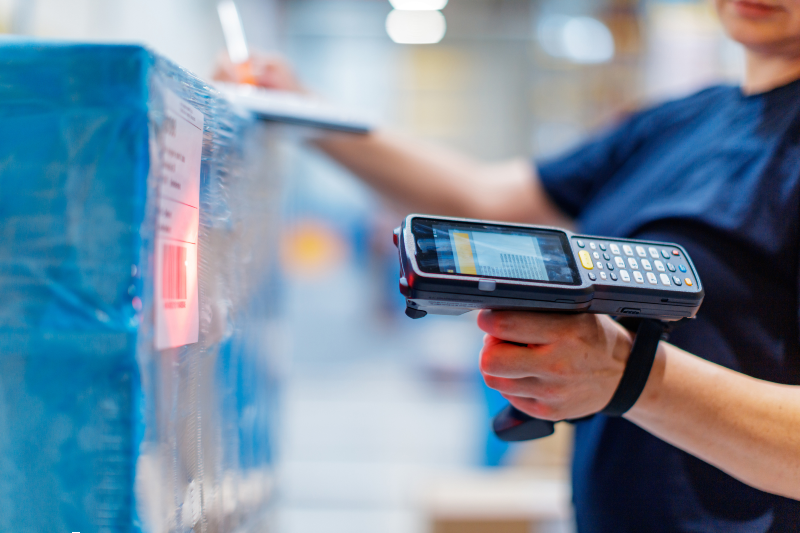Choosing the Right Barcode Scanner for Your Service Demands
Choosing the appropriate barcode scanner for your service requires a nuanced understanding of your certain functional needs and environmental problems. Factors such as scanner kind, speed, and compatibility with existing systems play a crucial duty in identifying the appropriate selection.
Comprehending Barcode Scanner Kind
When it comes to choosing a barcode scanner, comprehending the various types offered is essential for meeting specific service needs. Barcode scanners can be categorized right into numerous kinds, each designed for different applications and settings.
Portable scanners are the most typical, offering transportability and ease of use, making them ideal for retail and supply management. They commonly attach by means of USB or Bluetooth, supplying flexibility in procedure. Fixed-mount scanners, on the other hand, are developed for high-volume scanning applications, commonly located in assembly lines or checkout counters. These scanners are installed in a stationary setting, enabling for fast scanning of several products in succession.
One more type is the mobile computer system, which integrates scanning capabilities with computing power. These tools are optimal for field operations or warehouse management, making it possible for data collection and real-time inventory tracking. In addition, there are industrial scanners that are built to stand up to rough environments, such as extreme temperature levels or direct exposure to dirt and moisture.

Secret Functions to Consider
What important attributes should organizations focus on when selecting a barcode scanner? Most importantly, scanning speed is essential, as faster scanners improve operational efficiency, particularly in high-volume settings. The scanner's capability to review various barcode layouts is additionally crucial; guarantee it sustains preferred types like QR codes, UPC, and Code 128 to accommodate diverse supply items.
Durability is an additional crucial function, particularly for organizations in sturdy settings. Seek designs that are constructed to endure drops, dust, and wetness. Furthermore, think about the connectivity options readily available; whether you favor USB, Bluetooth, or Wi-Fi, the best connectivity can enhance assimilation with existing systems.

Examining Your Business Atmosphere
To efficiently choose a barcode scanner, companies must take stock of their specific functional atmosphere. This assessment includes reviewing the physical design of the office, the nature of the items being checked, and the typical conditions under which scanning occurs. For instance, a retail setting might call for portable scanners that can swiftly refine purchases at the check out, while a storage facility setup might benefit from ruggedized scanners created to endure harsher conditions.
Furthermore, think about the quantity of scanning called for. High-throughput settings may demand advanced scanning modern technologies, such as fixed-position scanners or smart phones that can operate efficiently in fast-paced circumstances. The assimilation capacities with existing stock administration systems likewise play a vital function; ensure the chosen scanner can flawlessly attach with software platforms in operation.
Moreover, evaluate the potential for development and scalability. A scanner that meets existing needs may not be enough as company expands. By thoroughly assessing these variables, businesses can choose a barcode scanner that not just satisfies instant needs but additionally supports long-lasting functional efficiency and adaptability. This tactical method ultimately adds to smoother processes and enhanced efficiency.
Budgeting for Your Scanner
Having evaluated the operational environment and determined the details demands for a barcode scanner, the following step entails careful budgeting to make sure a smart monetary investment. Establishing a spending plan begins with identifying the total expenses connected with the scanner, including first purchase cost, operational expenses, and potential maintenance charges.
When choosing a barcode scanner, take into consideration the variety of offered options, from see this site handheld devices to fixed-position scanners, as rates can differ significantly. It is important to stabilize expense with performance; going with a more budget-friendly version might bring about boosted operational ineffectiveness if it does not fulfill your service needs.
In enhancement to the hardware, element in expenses associated with software program, training, and possible upgrades. While it could be appealing to decrease ahead of time expense, investing in a quality scanner that aligns with your functional needs can yield lasting cost savings through enhanced efficiency and minimized downtime.
Finally, think about the overall expense of possession, which incorporates the scanner's lifespan and potential resale worth. By diligently planning your budget plan, you can ensure that your investment in a barcode scanner will boost your functional productivity and monetary efficiency.
Combination With Existing Equipment
Incorporating a barcode scanner with your existing systems is critical for maximizing its performance and ensuring smooth important site operations. barcodes scanners. A well-integrated scanner enhances operations effectiveness, reduces mistakes, and accelerates information handling. When selecting a barcode scanner, consider compatibility with your current software application and equipment infrastructure, including your supply management systems, point-of-sale (POS) systems, and venture source planning (ERP) remedies
Examine whether the scanner uses common protocols such as USB, Bluetooth, or Wi-Fi, which can help with very easy integration. Additionally, examine whether the scanner's software program offers APIs or SDKs that enable for my link customization and assimilation with exclusive systems. This is specifically essential for businesses with one-of-a-kind functional requirements.
As your organization expands, your systems should be able to fit added scanners and take care of raised data quantities without considerable reconfiguration. Inevitably, spending in a barcode scanner that perfectly integrates with your existing systems will produce long-term advantages, boosting accuracy, effectiveness, and general performance within your operations.

Final Thought
In conclusion, selecting a proper barcode scanner necessitates an extensive analysis of numerous elements, including scanner types, crucial features, and the particular organization environment. Proper budgeting for both purchase and functional expenses is essential, alongside making sure compatibility with existing systems. By carefully taking into consideration these components, services can improve performance and performance, inevitably bring about enhanced functional outcomes. The appropriate barcode scanner functions as a vital tool in simplifying procedures and promoting reliable inventory monitoring.